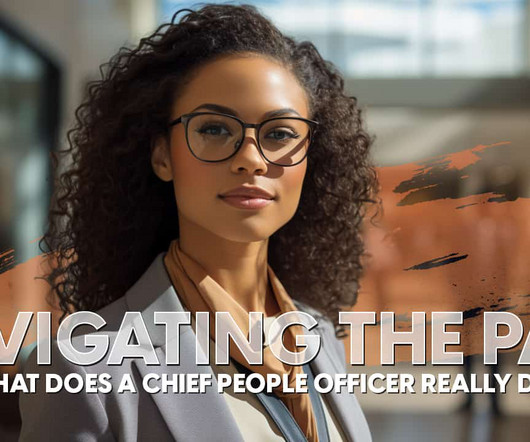Navigating the Path: What Does a Chief People Officer Really Do?
N2Growth Blog
DECEMBER 5, 2023
This executive role focuses on developing and implementing human resources strategies to manage the workforce and create a positive organizational culture. Chief People Officer Role Overview: The CPO oversees talent management, recruitment, and retention strategies to ensure the organization has the right individuals in place.


































Let's personalize your content